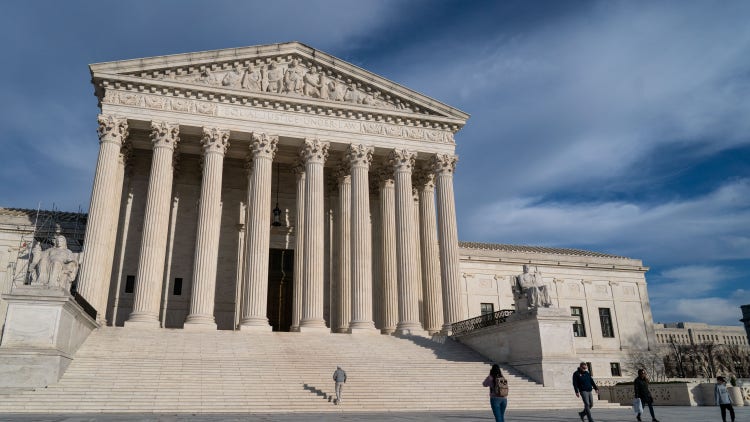
An Arizona death row inmate will have the opportunity to appeal his case after receiving the backing of the highest court in the land. On Wednesday (Feb. 22), the Supreme Court ruled in favor of John Montenegro Cruz and granted him the ability to challenge his sentence after being stopped from doing so due to a technicality.
Cruz was convicted of murdering a Tuscon police officer back in 2003. During his trial, while the jury was deliberating on whether to recommend life in prison or the death penalty, Cruz’s lawyer repeatedly asked if he could inform the citizens charged with his client’s fate that he would not be eligible for parole if he spent the rest of his years behind bars.
The request had valid legal standing. In 1994, the U.S. Supreme Court ruled in Simmons v. South Carolina that informing the jury of parole ineligibility was part of the due process entitled to death row inmates. Yet despite this, Cruz’s legal team was prevented from informing the jurors of this important fact. Cruz lost his case as a result and was ordered to capital punishment. The Arizona Supreme Court later reaffirmed its decision, ruling that Simmons didn’t apply in Arizona as it originated in South Carolina. But in 2016, the U.S. Supreme Court found in Lynch v. Arizona that Simmons is enforceable in The Grand Canyon State.
Cruz petitioned another time but was once again denied. A local procedural rule required there to be a “significant change in the law” for appeals to be considered, and the Arizona Supreme Court held that Lynch didn’t constitute a major shift in the books.
The U.S. Supreme Court declared in a 5-4 decision on Wednesday that Cruz had the power to present his case anew despite Arizona’s many refusals, opening the door for him to be resentenced. The majority opinion was written by Justice Sonia Sotomayor, who was joined by Chief Justice John Roberts and Justices Ketanji Brown Jackson, Elena Kagan, and Brett Kavanaugh.
“Although this is a very technical ruling, its basic gist is that state supreme courts can’t rely upon novel state procedural rules to prevent state prisoners from bringing federal constitutional claims,” Steve Vladeck, a professor at the University of Texas School of Law, told CNN of the result. “Cruz may or may not prevail on his federal claim — that he had a right to have the jury know that a life sentence would be without parole. But he now gets to make that argument in the first place.”